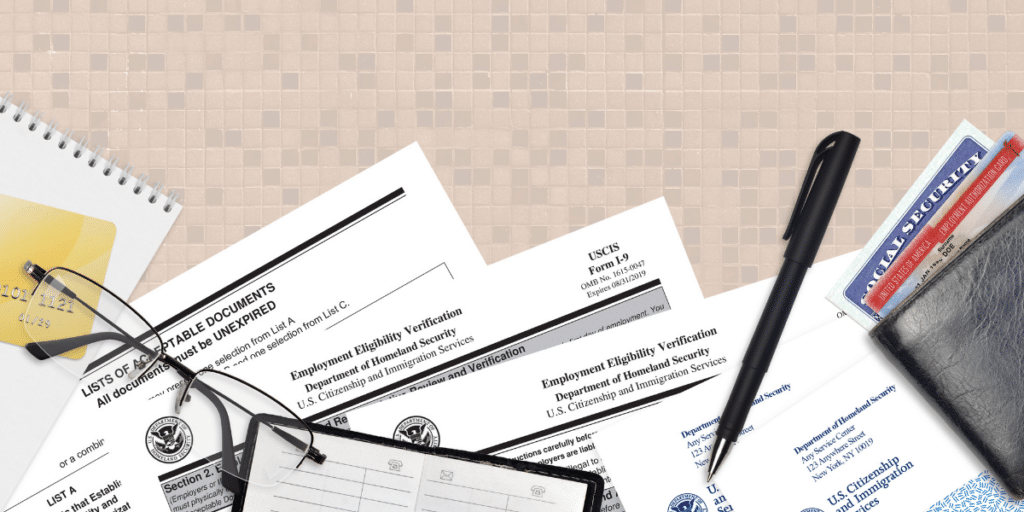If you’re a Charlotte business owner, you know just how important your online reputation is. Around 98% of consumers read reviews before they buy, and more than 8 out of 10 of those consumers turn to Google reviews.
Your Google reviews can attract new customers, build trust, and grow your business. But what happens when that dreaded one-star review pops up? Whether it’s a complaint about your service or a comment that feels unfair, a bad review can sting—and can make you wonder what to do next. If you suspect the review is untrue, you might even be wondering if you have grounds to file a defamation lawsuit.
We’re here to tell you that you have options. Here’s how to handle a negative Google review in a way that protects your business and maintains your professionalism.
1. Talk It Out with the Customer
The first step is to reach out to the reviewer directly, if possible. Listen to their concerns and make a genuine effort to resolve the problem. Sometimes, a customer just needs to feel heard. Approaching them in a calm, understanding way can pave the way to fixing the issue.
Many times, resolving the concern can lead to the customer removing the bad review. You can politely request this once things have been resolved. You might say, “I’m so glad we were able to work this out. If you feel comfortable, we would really appreciate it if you could update or remove your review.”
Keep in mind that not every interaction will result in a removed review, but showing good faith can go a long way in demonstrating your dedication to customer satisfaction.
2. Respond Professionally—Always
When you can’t resolve the issue privately—or if the reviewer isn’t responsive—write a public response to the review on Google. In spite of how you feel about the review, you should avoid getting defensive, argumentative, or emotional. Instead, stay calm and professional.
Your response should have two main goals:
- Show the public that you take negative feedback seriously.
- Reassure other potential customers who might be reading the review.
A response like this can do the trick: “Hi [Reviewer’s Name], we’re sorry to hear about your experience. At [Your Business Name], we strive to provide excellent service, and it’s disappointing to hear we fell short. We’d love to make things right—please reach out to us at [contact info] so we can discuss this further.”
This shows that you’re approachable, willing to make amends, and committed to improvement. When potential customers see your response, it can ease their concerns and show them that you care about your business.
3. Tackling Fake Reviews
Sometimes the issue isn’t an unhappy customer—it’s a fake review. Whether it’s from a competitor pretending to be a customer or a former employee with a grudge, fake reviews can be frustrating and unfair. Luckily, Google has rules against this kind of behavior and ways to report it.
To report a fake review, take these steps:
- Visit the review on your Google Business Profile.
- Click the three dots in the top right corner of the review and choose “Report review.”
- Follow Google’s prompts to explain why the review violates their guidelines.
Google won’t remove reviews right away, but their team will look into it and take action if needed. Having patience and keeping documentation can help with this process. If the review is particularly harmful or doesn’t get resolved through Google, you might want to talk to an attorney to see what other steps you can take.
4. Know When It Could Be Defamation
Not all bad reviews are created equal. If a review contains outright lies or false information, it might rise to the level of defamation.
Under North Carolina law, defamation involves a false statement that causes harm. But keep in mind, opinions—even harsh ones—don’t count as defamation. If you think a review includes a clearly false statement that’s harmful, there could be a case for legal action.
To pursue a defamation claim, the review has to meet all four of these elements:
- The statement must be false. Even if someone’s statement impacts your business, as long as it’s true, you generally can’t sue for defamation—aside from a few rare and specific exceptions.
- The statement cannot be a mere opinion. The line between defamation and opinion can get a little tricky. If a customer writes, “This business has the worst customer service I’ve ever experienced; I’ll never come back,” it would be considered an opinion and would be protected.
- The statement must be communicated to one or more people. Any public online review would fall under this category.
- The business must have suffered some harm. You can show this by proving that due to the review, there’s been a decrease in business, customers have left, or that the business has incurred additional costs to deal with the defamatory reviews.
If you meet all four criteria, you might have a case for defamation. It’s a good idea to consult with an attorney to figure out if filing a claim makes sense. This is where a law firm like Dozier Miller can help—our business litigation team can take a closer look at your situation and guide you on what to do next.
5. Best Practices for Managing Google Reviews
Handling reviews isn’t just about damage control when something goes wrong. Keep these best practices in mind to maintain a healthy online reputation:
- Encourage happy customers to leave reviews. A steady stream of positive reviews can offset the occasional negative one.
- Respond to positive reviews too. A quick “thank you” shows you’re engaged and grateful for feedback.
- Monitor your reviews regularly. Staying on top of your online reputation means problems don’t sit unnoticed for too long.
- Be proactive. If a customer expresses frustration in person or via email, address it before it turns into a bad Google review.
Partner with Dozier Miller for Your Legal Needs
If you’re facing a situation involving negative reviews, whether it’s fake reviews or potentially defamatory ones, the experienced team at Dozier Miller can help. We specialize in helping Charlotte businesses protect their reputation and tackle challenges like defamation. Whether you need guidance on responding to reviews, legal advice, or someone to fight on your behalf, we’re here to help.
Reach out to our team today, and let’s find the right solution together. Your business deserves to thrive—not just survive.

CATEGORIES
Contact an Attorney
Our attorney offer specialized guidance and representation in a variety of practice areas.

REMEMBER: Always speak with your own attorney
This information is provided for informational purposes only; it is not offered as and does not constitute legal advice.
More Insights and Resources
Learn more about what to expect when facing a family law dispute in Charlotte, North Carolina from Family Law attorneys at Dozier Miller Law Group
What NC House Bill 269 Could Mean for Non-Compete Agreements in North Carolina
Non-compete agreements have long been a controversial tool in the corporate world—sometimes protecting legitimate business interests, and…
Protect What Matters Most: Estate Planning for Every Stage of Life
Thinking about the future doesn’t always come naturally. Many of us get caught up in the day-to-day,…
Will a Separation Protect Me Financially?
Separation is never easy, especially when financial questions start piling up. Can you protect your savings? Will…
Practical Custody Arrangements for Families
Trying to figure out custody arrangements? You’ve probably come across terms like joint custody, primary custody, and…
Future-Proof Your Business Against Form I-9 Changes
Running a business is no small feat. Between managing your team, keeping customers happy, and planning for…
When Do You Need an Attorney for a Breach of Contract Case?
Contracts are the backbone of any good business relationship. They bring clarity, set expectations, and hold everyone…
Navigating Immigration Changes and Their Impact on Employment Law
No matter the size of your business, immigration law affects your ability to hire and retain the…
LGBTQ Families and Stepparent Adoption: What You Need to Know in North Carolina
As a family law attorney in North Carolina, I’ve seen many parents assume that their legal status…
What to Do When You Get a Bad Google Review
If you’re a Charlotte business owner, you know just how important your online reputation is. Around 98%…
Managing Your Immigration Status in 2025
The 2024 election brought significant shifts to U.S. immigration policy, many of which have already begun reshaping…










